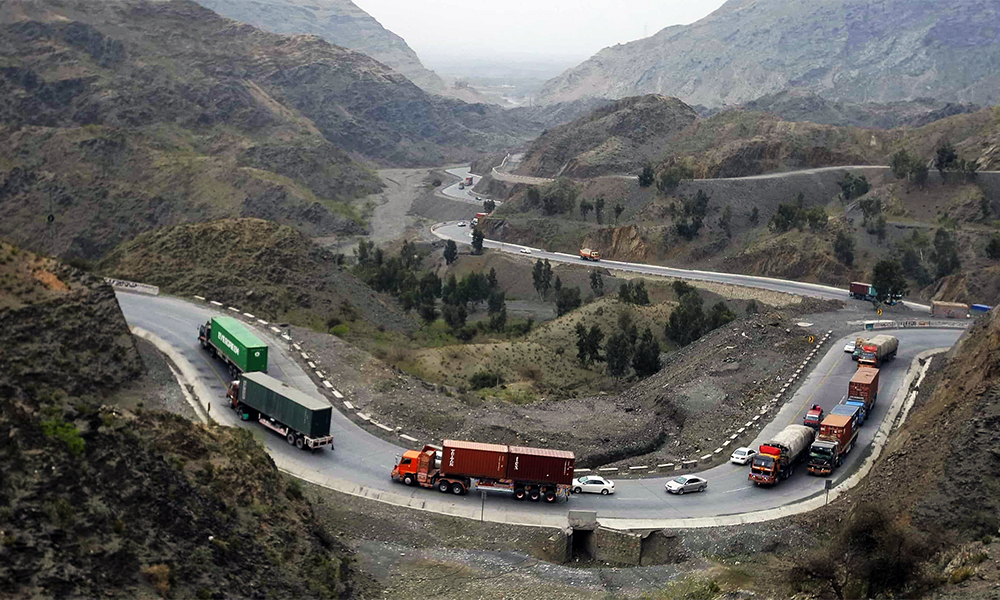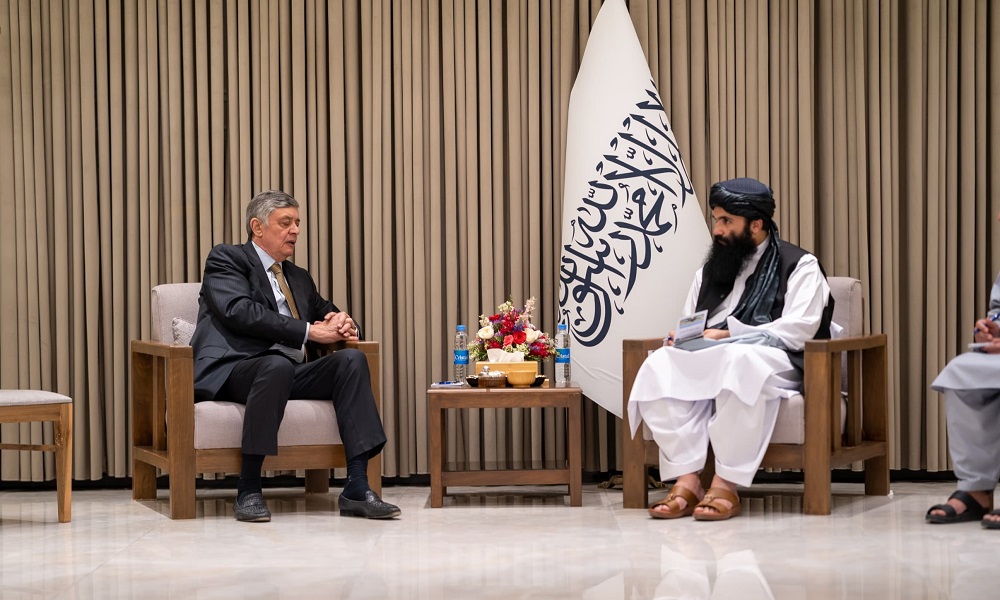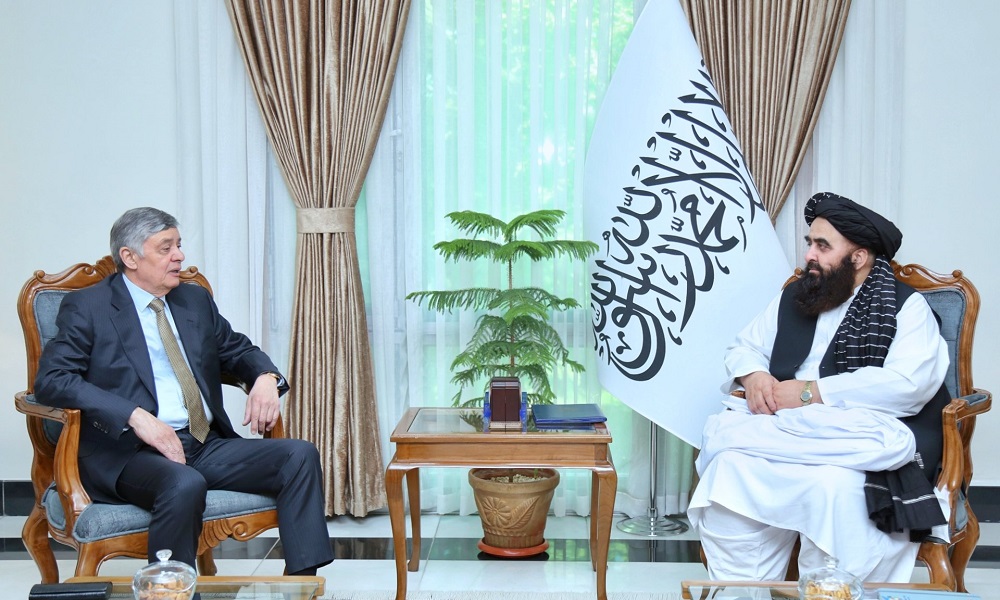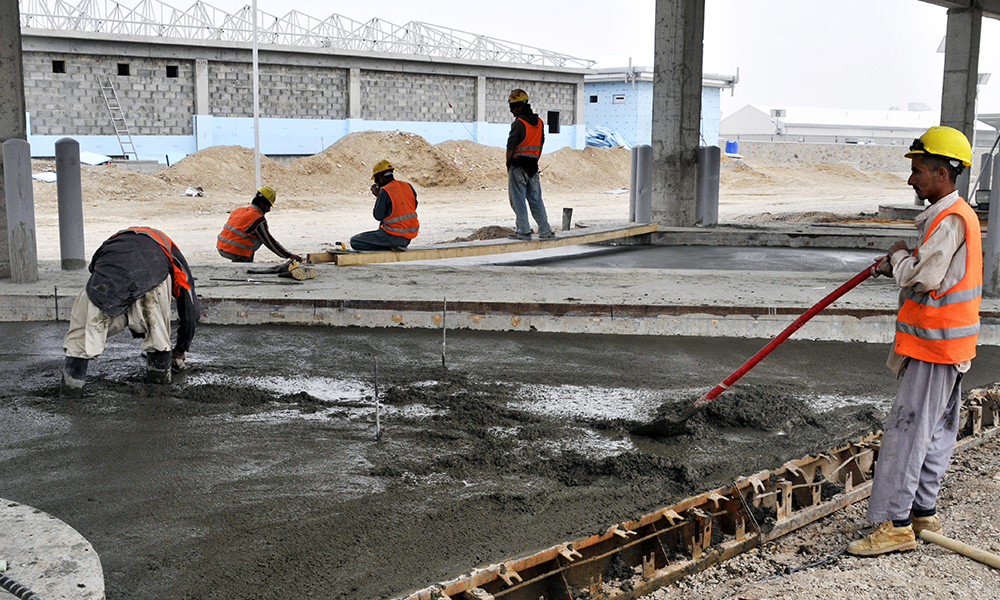Latest News
Afghanistan ‘ready to be included’ in major regional projects

Afghanistan stakeholders have said that with improved security in the country since the Islamic Emirate of Afghanistan’s (IEA) takeover, the country is now more than ready to be included in major regional projects, including China’s “One Belt One Road” initiative.
The China–Pakistan Economic Corridor (CPEC), is part of the One Belt One Road or New Silk Road initiative, which includes a land trade route from China to Pakistan’s Gwadar port.
The project includes two highways, two railway lines and a major hydroelectricity dam on the Kunar River.
The idea is to lay a road linking Pakistan’s Peshawar to Kabul and also to Kunduz and then further into Central Asia. Railway lines are expected to run from Landi-Kotal in Pakistan to Afghanistan’s Jalalabad, and also from Pakistan’s Chaman to Spin Boldak in Afghanistan.
China’s economic growth in previous years has made the countries participating in the One Belt One Road initiative optimistic and perceive the project to be comparable to China’s development of Shenzhen city, which conceptualized in 1980, has since grown into a metropolis in less than 30 years with a population of ten million.
Now, analysts are hoping Afghanistan will become part of another key undertaking by China – the One Belt One Road initiative.
“If this project (One Belt One Road) was not done through Afghanistan, I don’t think that the project would be very successful; if Afghanistan was not included, if this road passes through other routes, naturally, Afghanistan will not be a connecting point, and people’s perception will be that Afghanistan is not a connecting point but a season point,” said Imam Mohammad Warimach, former deputy minister of transport for Afghanistan.
The One Belt One Road is expected to start from the city of Xi An, in China and cross many Asian countries to Europe and Africa.
Afghan experts believe that China has adopted a new economy-oriented policy on Afghanistan.
“The government of Afghanistan and the continuous security crisis in this country have not given us the opportunity to have a proper awareness of the One Belt One Road Initiative, but China, as a close neighbor of Afghanistan, is trying to bring this country into an international economic cycle,” said Nazir Kabiri, researcher at Biruni Institute, a research organization in Kabul.
The One Belt One Road initiative will reportedly cover 65 countries – home to about 60% of the world’s population – and the cost of which will be about $4 trillion across 900 different projects.
“China is the world champion in the infrastructure sector, strong infrastructure has been built in China, which has a very high capacity, many raw materials are not needed in China and this is a unique opportunity for the Chinese to export them,” said Sebastian Heilmann founding director of the Mercator Institute for China Studies.
Considering the economic problems that Afghanistan is facing, Afghan experts believe that the country should be included in China’s One Belt One Road initiative, as it will help accelerate the construction of infrastructure, gain geographical advantages, and turn Afghanistan into an economically developed country.
In addition, while Afghanistan contends with an economic crisis, no country has yet recognized the Islamic Emirate of Afghanistan (IEA) government. However, the IEA is trying to overcome problems by focusing on infrastructure and economic development projects as well as establishing strong ties with foreign countries, analysts have said.
Baradar meets with envoy
This comes after Mullah Abdul Ghani Baradar Akhund, the Deputy Prime Minister for Economic Affairs, met with China’s Ambassador to Kabul Wang Yu on Wednesday and called on Beijing to include Afghanistan in the “One Belt One Road” initiative.
According to a statement released by Baradar’s office, the focus of the meeting was on the implementation of key economic projects that have been agreed upon by the two countries.
Meanwhile, Wang stated that his country “wants to deepen its ties with Afghanistan and supports the new government in any situation.”
Latest News
Moscow’s move a ‘significant step toward recognizing Afghanistan’s political realities’, says Haqqani

Acting Minister of Interior Sirajuddin Haqqani on Wednesday met with Zamir Kabulov, Russia’s special envoy for Afghanistan, and Dmitry Zhirnov, Russia’s ambassador to Kabul.
Haqqani expressed appreciation for Moscow’s recent decision to remove the Islamic Emirate from its list of terrorist organizations. He described the move as “a significant step toward recognizing the political realities of Afghanistan.”
In a statement, the interior ministry said that both sides emphasized the importance of upgrading diplomatic relations to the level of embassies and reaffirmed their commitment to mutual cooperation in the fields of security and trade.
During the meeting, the two parties also discussed regional and bilateral cooperation in the areas of security, economy, and commerce, and stressed the need to strengthen ties between the two countries.
Latest News
Special meeting will be held to launch Afghanistan–Russia joint commission, says Kabulov

Zamir Kabulov, Russia’s special envoy for Afghanistan, on Wednesday met with Afghanistan’s Acting Minister of Foreign Affairs Amir Khan Muttaqi in Kabul and said a special meeting will be held on the sidelines of the Kazan Forum to officially launch the permanent joint commission between Russia and Afghanistan.
According to a statement issued by the Afghan foreign ministry, Kabulov said that expanding relations with Afghanistan is important to Russia, and for that purpose, Moscow has taken steps to remove obstacles in the path of developing bilateral ties.
This comes after Moscow last week removed the Islamic Emirate from their list of militant organizations.
During the meeting, Muttaqi expressed appreciation for Russia’s recent move to remove the IEA from its list of banned organizations and stated that the Islamic Emirate will soon appoint a diplomat at the ambassadorial level to serve in Moscow.
The two sides also discussed enhancing bilateral relations between Afghanistan and Russia, expanding economic and trade cooperation, and addressing certain regional issues.
The 16th International Economic Forum “Russia – Islamic World: Kazan Forum” will be held from May 13 to 18 in the city of Kazan, Russia. Afghan products and goods will be showcased at the event.
Latest News
Balochistan business chamber asks Islamabad to issue work permits to Afghan refugees
This comes amid Pakistan’s ongoing campaign to expel hundreds of thousands of Afghan refugees living in the country.

The Balochistan Chamber of Commerce and Industry in Quetta, Pakistan, has appealed to the federal government to issue work permits to skilled Afghan refugees who work in various sectors including mining and agriculture.
Haji Akhtar Kakar, the vice president of the chamber of commerce and industry, made the request while pointing out that the existing shortage of skilled labour could worsen further if the issue was not addressed promptly, Dawn news reported.
This comes amid Pakistan’s ongoing campaign to expel hundreds of thousands of Afghan refugees living in the country.
Akhtar said however that due to Balochistan’s deteriorating security situation, mine owners, farmers and industrialists have had to rely on Afghans for skilled labor as Pakistani workers from other provinces were reluctant to move to Balochistan.
According to him, the decision to expel Afghan refugees had severely impacted the agriculture, mining, and industrial sectors in Balochistan, as a significant portion of the workforce came from Afghanistan.
-

 Sport5 days ago
Sport5 days agoAfghanistan qualify for U19 Cricket World Cup 2026
-

 Regional5 days ago
Regional5 days agoDeadliest US strike in Yemen kills 74 at oil terminal, Houthis say
-

 World4 days ago
World4 days agoThousands of protesters rally against Trump across US
-

 World4 days ago
World4 days agoIran, US end nuclear talks in Rome, agree to meet next week
-

 Latest News4 days ago
Latest News4 days agoPolio vaccination campaign launched in Afghanistan
-

 International Sports4 days ago
International Sports4 days agoIPL 2025: 14-year-old Vaibhav Suryavanshi becomes youngest IPL player
-

 Latest News2 days ago
Latest News2 days agoChina invites various Afghan delegations to attend Shanghai forums
-

 International Sports2 days ago
International Sports2 days agoIPL 2025: Robo-Dog ‘Champak’ explained






















